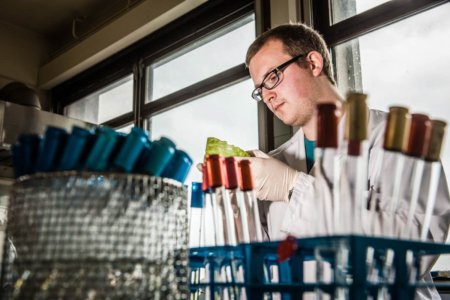
The ongoing COVID-19 pandemic has pushed healthcare professionals to the frontline. The prevention, alleviation, or cure of disease has never been more important today — and with people worldwide living longer, the demand for such services is only set to rise further.
If you want to make a real impact through your work, consider studying the health sciences. This group of disciplines focus on ensuring the health and quality of life of humans and animals, through the application of science, engineering, mathematics and technology concepts in practical and clinical settings. Dentists, veterinarians, mental health professionals, nurses, policy-makers and more — their occupations are all related to the health sciences.
Fulfilling and lucrative careers await the next generation of these professionals. By 2029, at least 2.4 million new healthcare jobs are set to be created; historically, they are among the highest-paying too. If you are unsure what to specialise in, the healthcare industry has diverse pathways that allow you to explore different career options.
If you seek an education and career in this exciting field, here are four UK universities to consider:
University of the West of Scotland

At the University of the West of Scotland, you’ll prepare to meet tomorrow’s health and life science challenges today. Source: University of the West of Scotland
For career-relevant, high quality, and inclusive higher education alongside innovative, internationally recognised research, head to the University of the West of Scotland (UWS).
UWS is the highest-ranked modern Scottish university (2019) and third in Scotland for student experience and teaching (2019), boasting an impressive record of 95.5% of graduates in work or further study six months after graduating.
The setting? Four campuses in the West of Scotland — Paisley, Lanarkshire, Dumfries and Ayr — and a campus in London. Its Paisley campus is less than five kilometres from Glasgow International Airport and only 16 kilometres from the centre of the city of Glasgow.
The School of Health and Life Sciences is Scotland’s largest provider of Nursing, Midwifery and Allied Health Professions programmes. Here, teaching is research-informed with links to real world issues; students can also access excellent research facilities including a specialist infection control suite and laboratories.
The school offers postgraduate programmes developed across a wide range of areas and designed to meet the needs of the individual and health boards across Scotland. The MSc Nursing provides an optional eight-week course to support those looking to become NMC registered in the UK. These programmes also meet students’ needs — the Master of Public Health and MSc Biotechnology are one year full-time with the option to add an additional three months of professional practice.
International nurses who wish to enhance their careers in nursing can opt for the BSc Hons Nursing Studies. For aspiring professional biomedical scientists, the BSc (Hons) Biomedical Science makes a great choice — it is accredited by the Institute of Biomedical Science (the leading professional body for biomedical scientists, support staff and students).
University of Portsmouth

Aerial View of Portsmouth. Source: University of Portsmouth, Facebook
University of Portsmouth, a top 25 UK university and rated five stars by QS World University Rankings 2021, is located in the UK’s seventh most popular city. TEF rated their teaching Gold, and 90% of graduates find jobs or continue further studies.
Their Nursing and Midwifery courses in the Faculty of Science and Health are ranked #11 in the 2021 Guardian University Guide.
The one-year full-time Master of Research in Science and Health allows students to undertake a research project in their focus area which ranges from Biological Science and Global Health to Health and Social Care. Students can attend university, faculty and department research talks, as well as networking events.
The Bachelor of Nursing (Hons) focuses on Adult Nursing, which includes simulation training in their Simulation Centre before clinical placement work in healthcare institutions; besides physical classes, online learning for some classes is also supported via Moodle.
Those who want to specialise in Mental Health can take up the Bachelor of Nursing (Mental Health, Hons) where they can train in simulated mental health nursing situations. This course is developed and delivered with local NHS partners. Students benefit from extensive time spent working with patients in real healthcare settings, where they get to hone key skills in mental health assessment and care.
University of Bath

The city of Bath in its splendour. Source: University of Bath, Facebook
Top-ranked in South West England, the University of Bath is ranked ninth best overall UK university and sixth for graduate career prospects. Upgraded with new accommodation, academic buildings and sports facilities, their main campus is located in Claverton Down — home to over 18,000 students come from 130 countries.
The Department of Health offers the following programmes: the four-year Bachelor of Science in Health and Exercise Science; the two-year Foundation in Sport (Sport Science) that can be accepted for the work-based one-year Bachelor of Science (Hons) in Sport (Sport Science); and the four-year Bachelor of Science (Hons) in Sport and Exercise Science, which offers a combined study abroad and placement year.
At the postgraduate level, the one-year full-time Master of Research in Health and Wellbeing trains students in research methods to develop sustainable interventions for enhancing health and wellbeing as well as to narrow the gaps in physical and psychological health inequalities.
This master’s programme can be completed on its own; it is also accepted as part of the South West Doctoral Training Partnership for the 1+3 PhD pathway via a studentship. The Master of Sport Management, Master of Sport and Exercise Medicine and Master of Sport Physiotherapy are also offered.
University of Manchester

The iconic Samuel Alexander Building on the University of Manchester campus. Source: University of Manchester, Facebook
The University of Manchester is the 23rd most international university in the world and was ranked 35th in 2021’s Academic Ranking of World Universities. It is also the world’s top institution for social and environmental impact.
Its Faculty of Biology, Medicine and Health offers a top-ranked BNurs Mental Health Nursing where students can gain experience of different clinical areas through practice learning experiences with trusts that offer specialist services, as well as having the opportunity to have a practice learning experience in an alternative setting in the UK or abroad.
Graduates will be eligible to register with the Nursing and Midwifery Council (NMC) and have the option to add a year on to their course to complete an integrated master’s (MNurs). They are set to join the programme’s list of notable alumni, who are now the country’s leading nurse practitioners, researchers and policymakers.
Meanwhile, Manchester’s undergraduate Public Health programme will prepare students to solve issues at a local, national and international level. BSc students here learn a range of interventions which target individual or subsections of the population such as different age ranges and ethnic groups. They will also be able to gain analytical skills to appraise research and policy, and to explore methods to ensure health services are effective, efficient and accessible.










